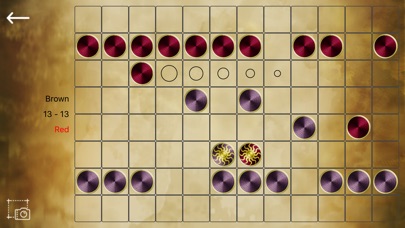
Achilles Chess
Achilles Chess or "petteia" was a Greek strategy board game lost in the centuries. This is the oldest form of a Greek board game in history.
Ancient Greeks called "Petteia" any game played with pillars. The first reference is made in Homer’s work, and according to Athimaios in the Odyssey, where Homer refers to Penelopes lazy contenders as playing the petteia. In addition, the well-known professor of archeology, Alexandros Rizos Ragavis, considers petteia to be one of the three main homeric games. Nevertheless, there are few surviving passages referring to this game.
According to the resources, inventor of the game is Palamidis, who invented it when the Greek fleet was in Avlida waiting to leave for Troy or during the siege of Troy. Also, Euripides shows Palamidis playing this game with Protesilaos.
Petteia was played either for mere pleasure or for profit. As an intelectual game it was highly appreciated because it exerted the sharpness of the players, while Platos the knowledge offered was considered by Plato as equal to accounting, arithmetics and geometry.
In addition, there is the notion that, apart from being a strategy game, it was a game of clairvoyance. An example is the use of Achilles and Aia (a relative ancient Greek black-figure amphora of 450 BC, which is now housed in a state museum in Berlin), who played "petteia" trying to guess about the fall of Troy. This game was dear to the aristocracy, which had spare time to play this game, but also to other social groups such as warriors, convicts, exiles, elders, etc.
The game was widely accepted by the Romans, who enthralled it with passion. Indeed, they had improved it and developed it into a high intellectual game. They called it lactus latruncularum or lantruculi. The Byzantines took it from the Romans and they developed it into the "chess" game. In Byzantium, however, the "petteia" was often identified with the other dice games, because they used cubes to move the pawns. Thus, very easily from an intellectual game it was transformed into a game of gambling.
--- http://seikilo.com ---



